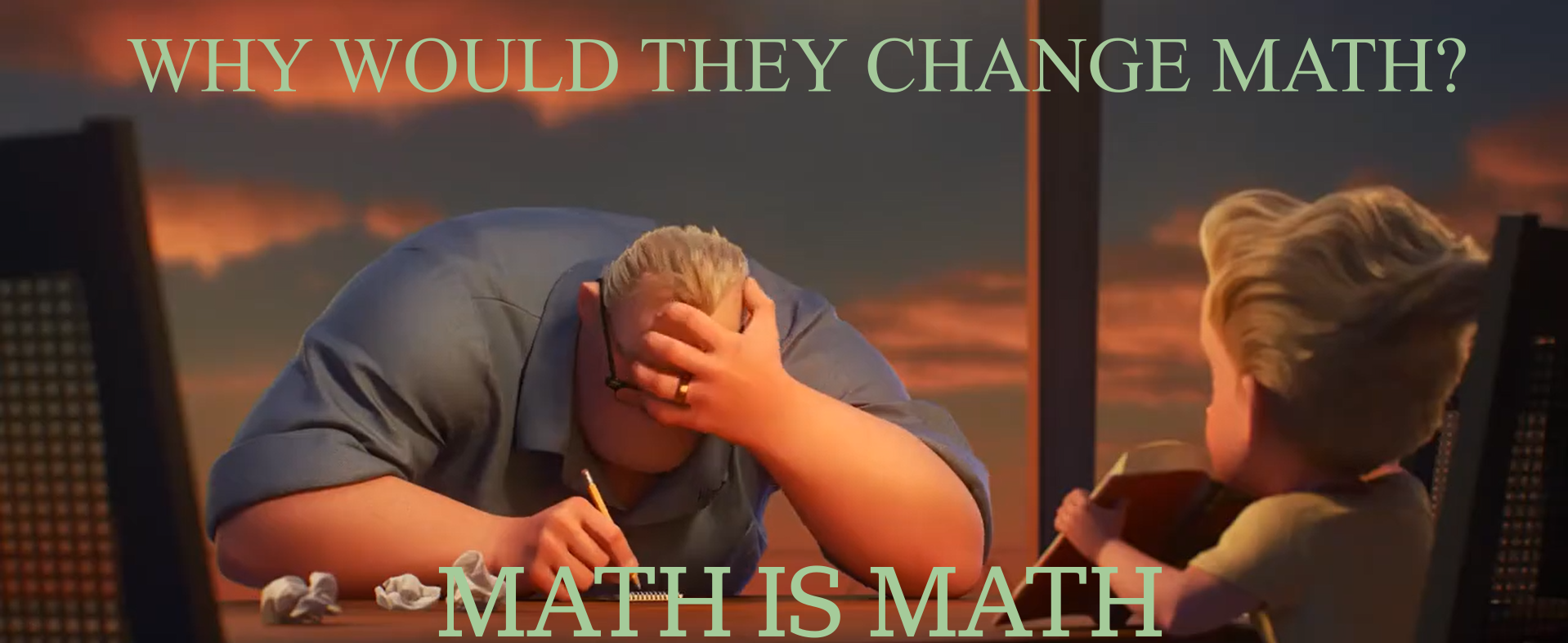What is Math Anxiety?
Overwhelmed, frustrated, anxious about math? You’re not crazy, and you’re not alone.
When people learn that I’m a teacher, I get a wide range of reactions- commiserating about education, appreciation for the work, curiosity, personal stories, critical analysis of schooling. When people learn that I’m a math teacher, the reactions are much more consistent- most either tell me they don’t like math or they’re bad at it. This holds across geography, age, profession, and economic status. I hear this so often that I’ve already got my next question ready- did you always dislike/struggle with math?
The Drop
Math panic/trauma/anxiety is real!
More often than not, people can trace back their math anxiety/illiteracy to a few specific skills. Fractions, negative numbers, and variables. If I had a quarter for each time somebody asked “
”why we have to add letters to math”. This isn’t new or surprising- the methodology of teaching these skills is almost continuously shifting and their time in the curriculum keeps on expanding because educators know that they derail students. The changing methods can be frustrating and confusing for parents with math anxiety, which can then intensify student feelings even more.
There are also some common reasons- a week or more of missed classes, a change in school, bullying, or a cruel teacher. Because math skills build on each other step by step, losing a week of content to an illness or a year of content to Mr. Smith’s power trip hits math class much harder than other subjects. Miss one history topic and you’ve missed one history topic. Miss a math topic and you're already lost when the next one comes up.
These events or topics mark the turning point between when people enjoyed, tolerated, or understood math, and when they detest and fear it. Students go from confidently giving answers and acing tests to saying they know nothing about math in a matter of weeks. Nobody is immune- I got up to differential equations and suddenly realized I’m an impostor who never understood anything about math and my brain just doesn’t work that way. I’m not and it does, but confusing content and a lack of support quickly put me in a state to fool myself.
The Experience
There’s a difference between disliking math and being anxious about it. While pathologizing this experience isn’t helpful for everybody, I have found math anxiety a useful framework for increasing both compassion for negative responses, and my toolbox for continuing math and supporting students to continue learning math.
Math anxiety is a stress response that’s triggered when people need to take tests or learn equations, but also in daily life tasks involving numbers. It can keep kids from engaging in class or learning time management. It can keep adults from verifying their paycheck or managing medication doses. Math is in everything we do and math anxiety makes many daily life tasks harder. While the connection of these words may seem unusual, neurological research reinforces it- Sian Beilock and Ian Lyons studied people anticipating a math task in an MRI machine and found that math anxious people had higher activity in brain regions associated with threat detection and the experience of pain.
Math Myths
Not all math anxiety comes from cultural myths about math, but they certainly don’t help. These myths promote the mindset that math is by and for a select few people, and that everybody else is mathematically dysfunctional. They are both untrue and damaging. I’ve adapted this list from “Mind over Math” by Kogelman and Warren, a landmark book based on a math anxiety workshop the two developed.
Men, neurotypicals, and white people are better at math
Math requires logic, not intuition
Math is analytic, not creative
You must always know how you got the answer
There is a right way to do math
It’s always important to get the answer exactly correct
It’s bad to count on your fingers or use other adaptive tools
Good mathematicians do problems quickly, in their head
Math requires a good memory
Math is done by working intensely until the problem is solved
Some people have a “math mind” and some don’t
There is a magic key to math
Over the next few months I’ll explore each of these myths in more detail. After each post, I’ll ask these questions again:
Reflection Questions
What factors influence your relationship to math?
Can you remember a time that your relationship to math drastically changed?
What do you already excel at in your daily life that uses mathematical skills?
What do you avoid because of the associated math?
What would you say to a math anxious friend? A kid? Yourself?

